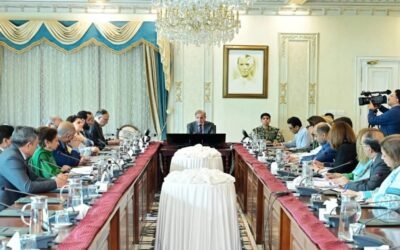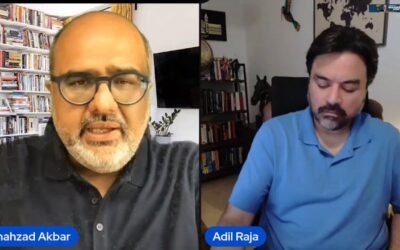Kyiv, Ukraine — Ukrainian President Volodymyr Zelenskyy has leveled serious allegations against Pakistan, China, and several other nations, accusing them of indirectly supporting Russia’s war in Ukraine by allowing their citizens to serve as mercenaries on the battlefield. During a visit to Ukrainian forces near the northeastern city of Vovchansk—one of the most volatile fronts in the ongoing war—Zelenskyy declared that foreign nationals were being recruited by Russia to bolster its manpower, a move he warned would escalate the conflict beyond Ukraine’s borders (Reuters).
According to Zelenskyy, Ukrainian troops have encountered fighters from Pakistan, China, Tajikistan, Uzbekistan, and multiple African nations. These individuals, he said, appear to be working in combat and logistical roles that directly support Russian military objectives. While he stopped short of alleging official state sponsorship, Zelenskyy made clear that the recruitment and deployment of these fighters represents a dangerous new dimension in the war—one that demands a strong international response.
“This is no longer a regional war,” he said. “This is a coalition of aggression, with Russia pulling vulnerable people from around the world into its imperialist machinery.”

Source: X/@ZelenskyyUa
Denials from Islamabad and Beijing
The reaction from the named countries was swift. Pakistan’s Foreign Office strongly rejected the allegations as “baseless and unfounded,” asserting that Ukraine had provided no evidence to support its claims. In a formal statement, officials criticized Kyiv for failing to engage diplomatically before making public accusations, which they warned could undermine Pakistan’s neutral stance in the conflict. “No Pakistani citizens are fighting for Russia,” the statement insisted, and added that the Ukrainian government had not submitted any formal inquiries or requests for verification through diplomatic channels.
Similarly, China also denied the presence of Chinese nationals fighting alongside Russian forces. Chinese officials had previously dismissed reports of Chinese citizens being recruited through paramilitary or private security networks, calling the allegations “fabricated” and politically motivated. In both cases, the countries accused Kyiv of attempting to internationalize the conflict through unverified claims and rhetorical escalation.
You May Like To Read: Erosion of Liberal Internationalism and Rise of Transactional Diplomacy
Strategic Opportunism or Desperation?
While neither Pakistan nor China has been proven to be directly involved in sponsoring foreign mercenaries, analysts suggest that Russia may be exploiting legal and economic loopholes to recruit nationals from these and other countries. According to Al Jazeera, some of these individuals may be economic migrants or former military personnel seeking income through mercenary work—often without full knowledge of the political implications or risks involved.
This tactic mirrors broader trends in Russia’s war strategy, including the outsourcing of combat roles to Wagner Group-style militias and foreign volunteers. Experts believe that this method offers the Kremlin plausible deniability while helping it offset mounting battlefield losses and troop fatigue.
“It’s a numbers game now,” one military analyst explained. “The Russian state may not need to directly recruit these individuals. All they need to do is make the opportunity available—through third-party contractors or black-market channels.”
International Law and Accountability
The use of mercenaries in armed conflict remains a contentious issue under international law. The UN Mercenary Convention prohibits the recruitment, use, financing, and training of mercenaries, but enforcement remains weak. Many of the alleged fighters fall into legal gray zones, making it difficult to pursue accountability without clear documentation or state cooperation.
According to Dawn, Pakistani officials expressed concern that Ukraine’s accusations risk turning global public opinion against Pakistan, particularly at a time when the country is facing internal economic and political pressures. Islamabad reiterated that it remains committed to peace and diplomacy, and urged Kyiv to share any verifiable evidence through formal channels rather than the media.
You May Like To Read: Trump Accuses India of Financing Putin’s War—New Flashpoint in U.S.-India Tensions
Escalating a Global Conflict?
Zelenskyy’s accusations come at a critical juncture in the war, as Ukraine continues to push for increased Western support while countering what it sees as a broader authoritarian alliance aiding Russia’s ambitions. The claims of foreign fighters could be an attempt to draw attention to Russia’s global support network—one that includes economic, logistical, and now potentially military assistance from sympathetic or strategically neutral states.
Critics, however, warn that such claims—absent concrete evidence—could backfire. They risk alienating potential partners in the Global South and undermining Ukraine’s efforts to build an international consensus against Russia’s invasion.
Yet for Zelenskyy, the message is clear: the war is expanding, not just in geography, but in scope and complexity. The battlefield is no longer limited to Russian and Ukrainian soldiers. It is becoming a global theatre, involving actors—both state and non-state—from across continents.
What Comes Next?
Whether these allegations will spark a formal investigation or remain a point of diplomatic contention remains to be seen. What is certain is that the ethics and legality of modern warfare are being stretched thin. The exploitation of foreign fighters, especially from economically disadvantaged regions, raises moral questions that go far beyond strategy. It exposes a system where human lives become disposable assets in geopolitical power plays.
As the war enters its third year, the world must grapple not only with how to stop it—but with who is being used to keep it going.



























